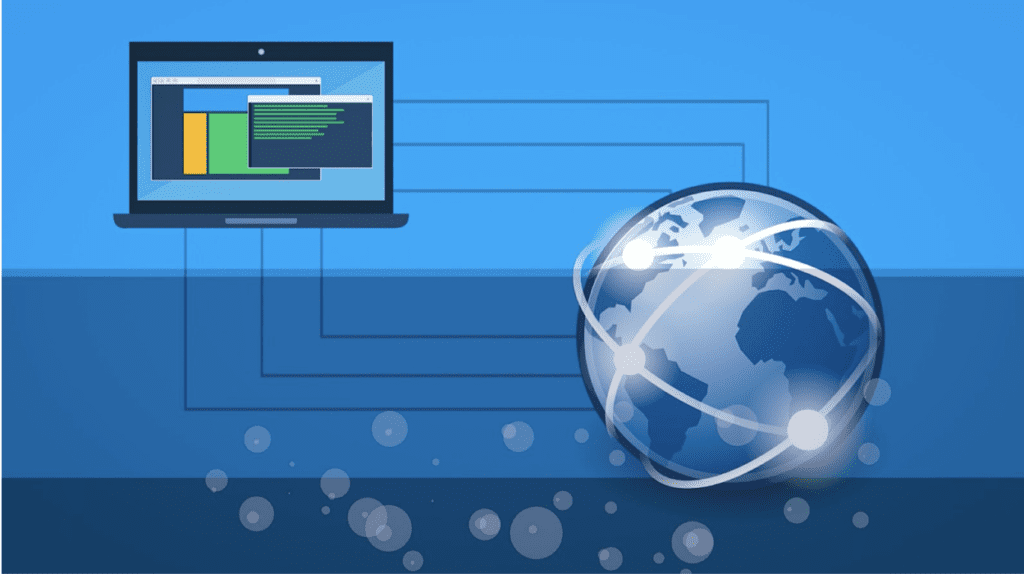Your IP (Internet Protocol) address is what’s connecting you to the vast internet. Each network has its own unique IP, represented as a series of numbers such as “184.24.342.22”.
Websites use this information to personalize your experience and increase their anti-fraud protections. However, an IP address can spell trouble for your network and devices when in the wrong hands.
How can cybercriminals and fraudsters use this innocent set of numbers? Here’s everything you need to know about your IP address.


Source: mohamed_hassan
Table Of Contents
Your IP address is more than just numbers
Listed below are the most common things people can do with your IP address.
#1. IP bans and geo-blocking
Have you ever annoyed a forum admin or broken some rules while online gaming? Chances are you were blocked all through your IP. Each time you post, play, or browse, your IP address is left behind, associating your network with your activity.
In specific countries, governments use “geo-blocking” to restrict entire geographies from accessing specific content. This can be certain websites, video games, and in some cases, social media.
#2. Personalized advertisements and search results
While the idea of catered ads and content can sound appealing, the results are often the opposite. Once search engines have decided on your niche, it can be difficult to find information relating to anything else.
Let’s say your views usually align with the left wing, but you want to broaden your political horizons. Finding content that opposes left-wing ideology becomes increasingly hard, as Google only wants to supply you with information you’ll agree with.
#3. Acquiring your personal information
“Approximate” physical location and your ISP don’t sound like sensitive data at first, but with these on hand, hackers can only find more. Let’s take a look at some examples that have proven to work for fraudsters:
- Impersonating law enforcement: Through phishing emails, they can demand your private data from your ISP.
- DDoS (Distributed Denial of Service) attacks: These brute-force attacks gain access to your network by overloading it with requests.
- Selling your data: On the dark web, items like your Gmail account can sell for around $65.
#4. Using your IP to commit illegal acts
If a hacker manages to successfully install malware on your network, they can use your IP address to perpetrate nefarious activities. This way, all illegal acts will be traced back to your network instead of their own.
Depending on the severity of these crimes, you can even be framed for them. The last thing you want is to be sued over copyright infringement when your network is associated with illegal file-sharing or hacking.
What information can be obtained from an IP address?
With your IP, information like your approximate physical location and your Internet Service Provider (ISP) are easy to obtain. This may seem harmless, but with this data, a hacker can:
- Attempt to retrieve your private data from your ISP;
- Track your online activity;
- Launch an attack on your network.
Can someone hack you with your IP address?
Each IP address has thousands of ports, which the internet uses along with your IP to communicate. A hacker who has your IP can try each of these ports to force access to your network and devices.
How easy is it to find my IP address?
Now you might be thinking: “is my IP that easy to find?”. Unfortunately, the answer may shock you. In a flash, you can see your own IP address on websites like WhatIsMyIPAddress. Furthermore, hackers can find your IP via:
- Running a website or ad you click on (phishing or not);
- Connecting to your network (all devices on your network share an IP);
- Receiving an email from you (some email clients will put your IP in the header).
Should I give anyone my IP address?
As mentioned, an IP address is not necessarily sensitive information. However, it can be a gateway to more sensitive data and should only be given to trusted individuals like family or friends.
How do I hide my IP address and location?
Luckily, there is a one-stop solution for anyone who wishes to hide their real IP from the world. The solution comes in the form of a Virtual Private Network (VPN). This tool disguises your true location by re-routing your data through encrypted VPN servers.
Think of a VPN as a private corridor. Anyone on the outside can’t read your IP address and, therefore, have no chance of accessing your private data. Learn more about this revolutionary cybersecurity tool.
Conclusion
An IP address alone is a relatively harmless piece of data, but in the wrong hands, it can give access to extremely sensitive material.
Protect your IP to avoid it falling into sinister hands and becoming the next victim of ruthless cyber criminals.
